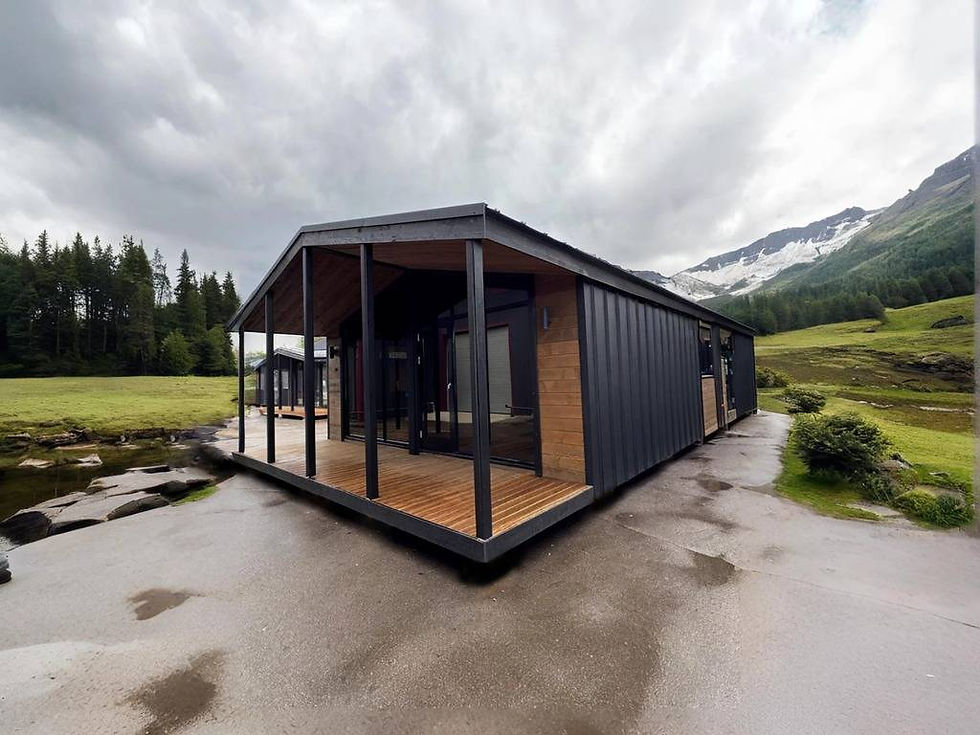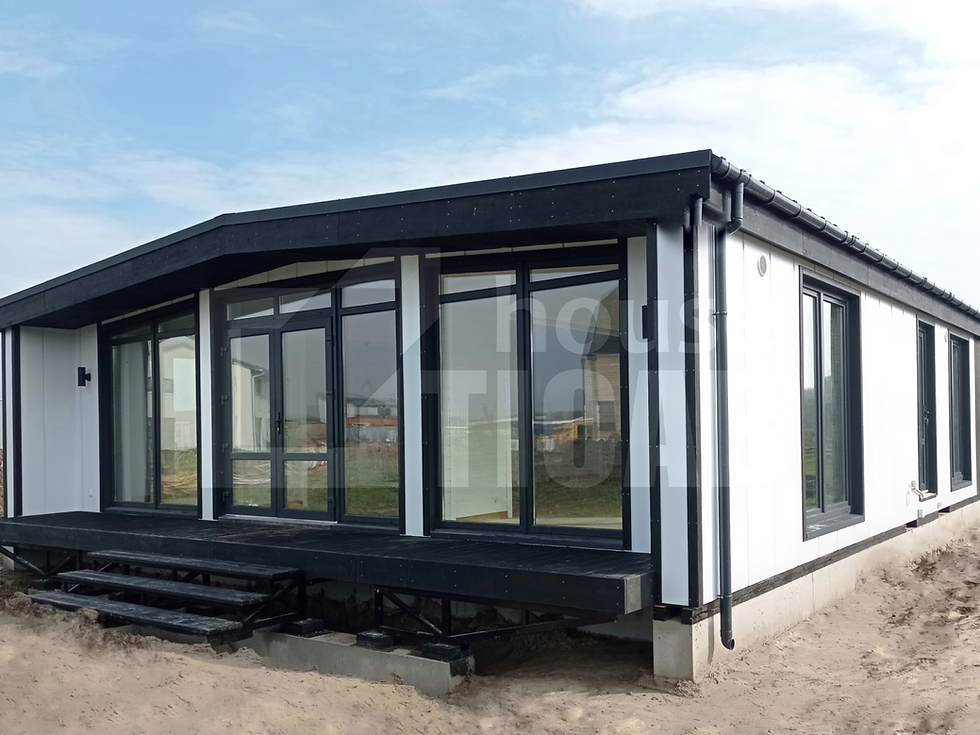Timber Frame Technology: A Modern Solution for Modular Homes
- TICAB Marketing
- Aug 22, 2025
- 3 min read

When it comes to modern construction methods, timber frame technology has become one of the most popular choices for both traditional and modular homes. Combining strength, sustainability, and design flexibility, timber frame construction is shaping the future of housing across Europe and beyond.
What Is Timber Frame Technology?
Timber frame construction is a building method where a structural framework made of high-quality wood forms the backbone of the house. Unlike traditional brick or concrete walls, timber frames allow for lighter structures, faster building processes, and more versatile designs.
This technology is widely used in modular home building, where houses are manufactured in sections (modules) at a factory and then transported to the construction site for quick assembly.
Why Timber Frame Technology Works Perfectly for Modular Homes
The combination of modular construction and timber frame technology offers numerous advantages:
1. Speed of Construction
Timber frames are prefabricated with precision, which means modules can be manufactured and assembled in a fraction of the time compared to brick-and-mortar buildings. A fully finished modular home can often be installed on-site in just a few weeks.
2. Energy Efficiency
One of the greatest strengths of timber frame houses is their excellent insulation properties. With proper design, these homes retain warmth in winter and stay cool in summer, leading to lower energy bills. This makes energy-efficient modular homes an attractive option for homeowners.
3. Sustainability and Eco-Friendliness
Timber is a renewable resource, and when responsibly sourced, it contributes to sustainable building practices. The lower carbon footprint of timber frame construction compared to concrete or steel makes it an eco-friendly solution for modern housing.
4. Flexibility in Design
Timber frames provide wide spans without the need for thick load-bearing walls. This gives homeowners greater freedom to design open-plan spaces, large windows, or custom layouts in their prefabricated homes.
5. Strength and Durability
Contrary to common myths, timber frame homes are highly durable and can last for decades, even in challenging climates. Modern treatments and construction standards ensure resistance to moisture, pests, and fire.
Timber Frame Construction vs. Traditional Building
When comparing timber frame houses to traditional brick homes, the benefits become clear:
Faster construction – modules can be prepared off-site while foundations are laid.
Lower costs – less labor-intensive and more efficient use of materials.
Eco-friendly homes – timber reduces reliance on carbon-heavy materials.
Greater comfort – superior insulation and acoustic performance.
This explains why modular timber frame homes are gaining popularity across Europe and North America.
Why Choose TICAB HOUSE for Timber Frame Modular Homes?
At TICAB HOUSE, we specialize in building high-quality modular homes using timber frame technology. Our houses are:
designed for energy efficiency and sustainability,
customizable to fit your lifestyle and interior ideas,
built with strict quality control in a factory setting,
installed quickly and professionally at your site.
Whether you are looking for a compact holiday house, a family residence, or a multi-module project, TICAB HOUSE modular homes combine modern construction methods with timeless comfort.
Conclusion
Timber frame technology is not only an efficient and eco-friendly building method but also a perfect match for the fast-growing world of modular homes. With benefits such as speed, sustainability, energy efficiency, and design flexibility, timber frame modular houses are the future of modern housing.
By choosing TICAB HOUSE, you invest in a home that is durable, stylish, environmentally responsible, and tailored to your needs.
If you are considering a new home, it’s time to discover the advantages of timber frame modular construction – the smarter way to build for the future.



Comments